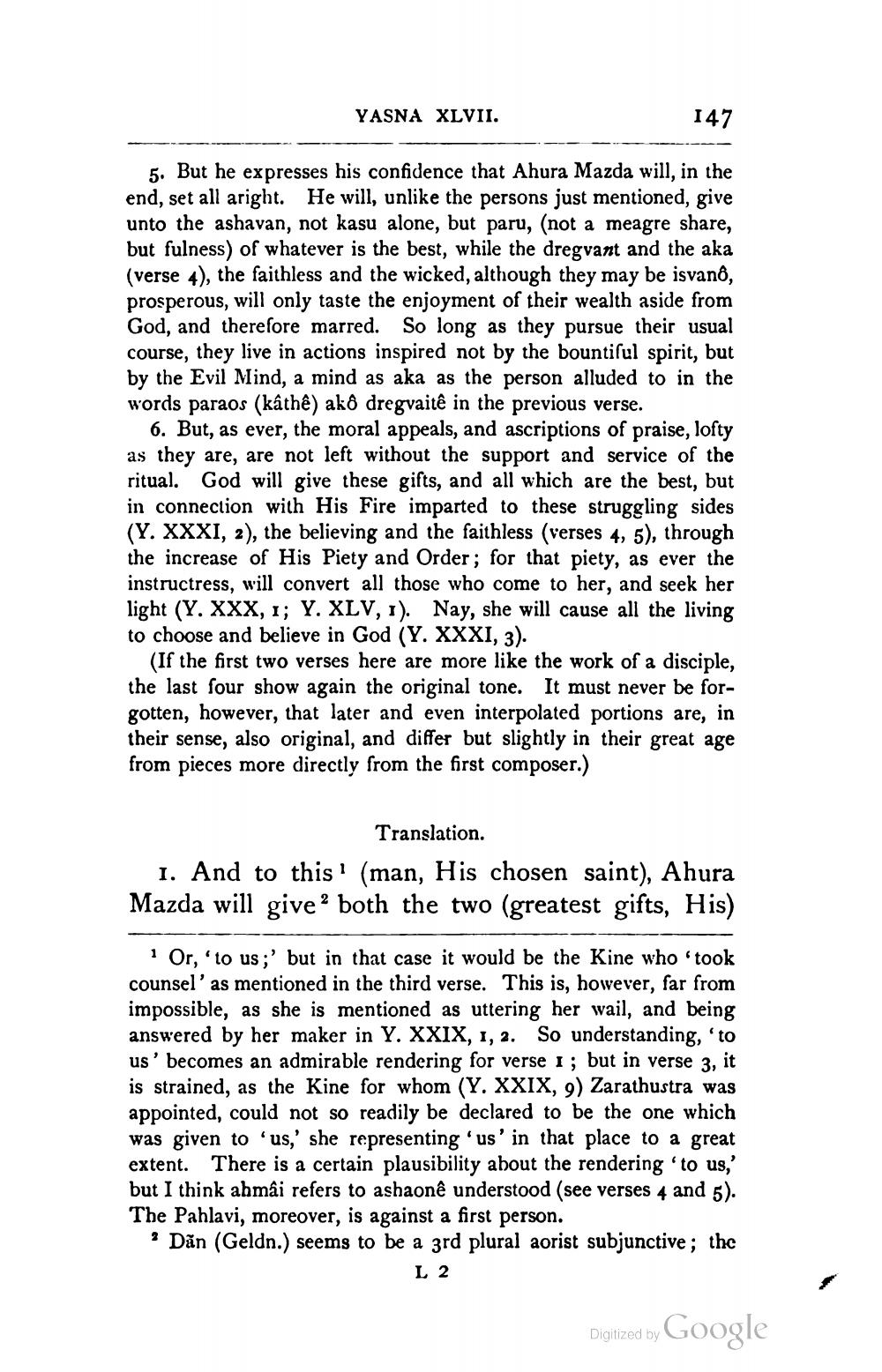________________
YASNA XLVII.
147
5. But he expresses his confidence that Ahura Mazda will, in the end, set all aright. He will, unlike the persons just mentioned, give unto the ashavan, not kasu alone, but paru, (not a meagre share, but fulness) of whatever is the best, while the dregvant and the aka (verse 4), the faithless and the wicked, although they may be isvano, prosperous, will only taste the enjoyment of their wealth aside from God, and therefore marred. So long as they pursue their usual course, they live in actions inspired not by the bountiful spirit, but by the Evil Mind, a mind as aka as the person alluded to in the words paraos (kathê) akð dregvaitê in the previous verse.
6. But, as ever, the moral appeals, and ascriptions of praise, lofty as they are, are not left without the support and service of the ritual. God will give these gifts, and all which are the best, but in connection with His Fire imparted to these struggling sides (Y. XXXI, 2), the believing and the faithless (verses 4, 5), through the increase of His Piety and Order; for that piety, as ever the instructress, will convert all those who come to her, and seek her light (Y. XXX, 1; Y. XLV, 1). Nay, she will cause all the living to choose and believe in God (Y. XXXI, 3).
(If the first two verses here are more like the work of a disciple, the last four show again the original tone. It must never be forgotten, however, that later and even interpolated portions are, in their sense, also original, and differ but slightly in their great age from pieces more directly from the first composer.)
Translation. 1. And to this' (man, His chosen saint), Ahura Mazda will give? both the two (greatest gifts, His)
1 Or, 'to us;' but in that case it would be the Kine who took counsel' as mentioned in the third verse. This is, however, far from impossible, as she is mentioned as uttering her wail, and being answered by her maker in Y. XXIX, 1, 2. So understanding, 'to us' becomes an admirable rendering for verse I ; but in verse 3, it is strained, as the Kine for whom (Y. XXIX, 9) Zarathustra was appointed, could not so readily be declared to be the one which was given to 'us,' she representing 'us' in that place to a great extent. There is a certain plausibility about the rendering 'to us,' but I think ahmâi refers to ashaone understood (see verses 4 and 5). The Pahlavi, moreover, is against a first person. * Dãn (Geldn.) seems to be a 3rd plural aorist subjunctive; the
L 2
Digitized by
Digitized by Google




